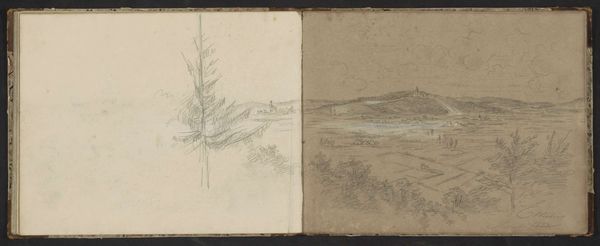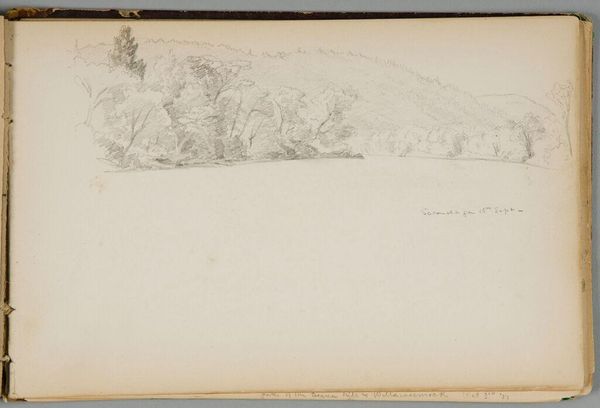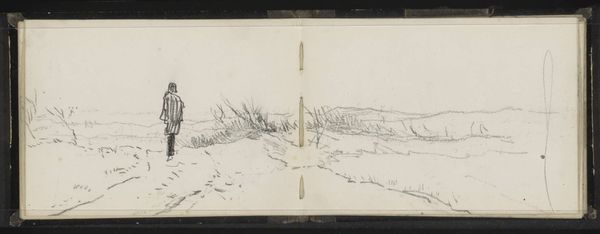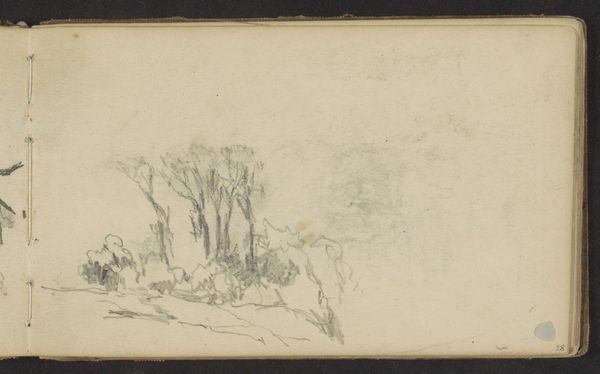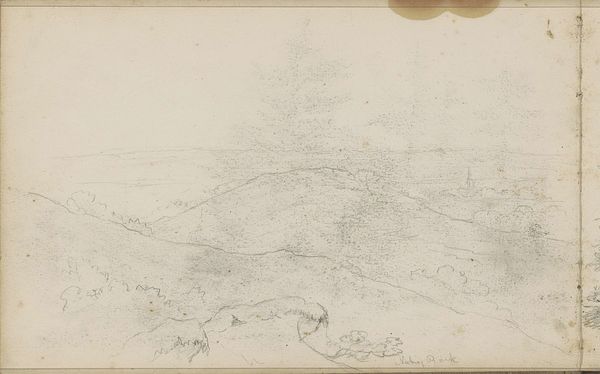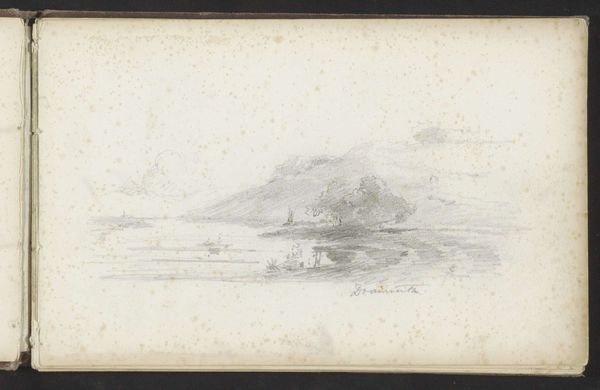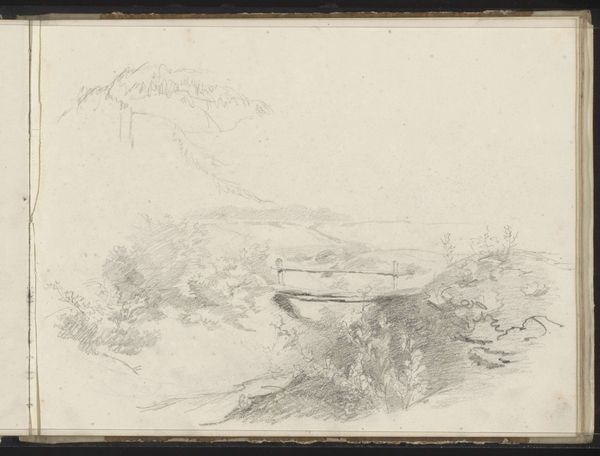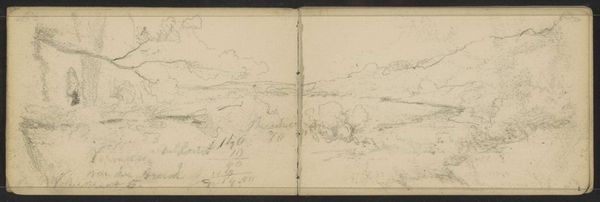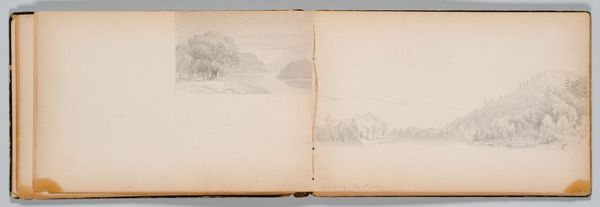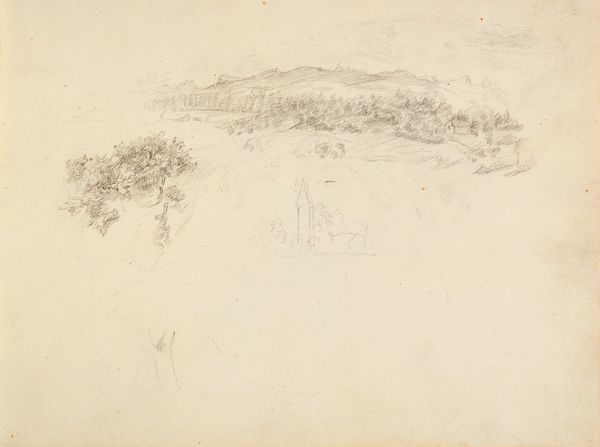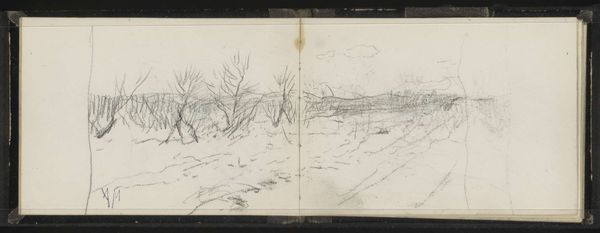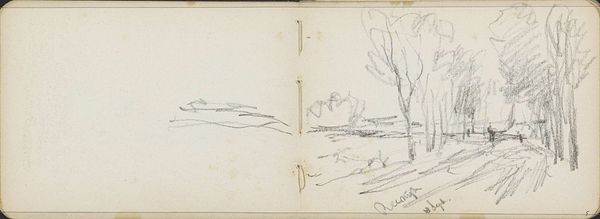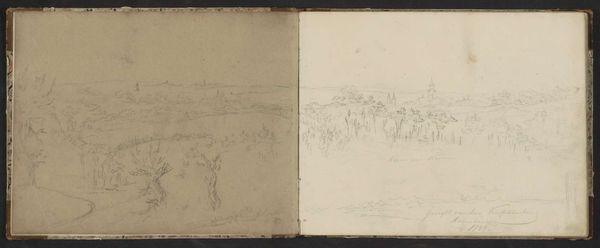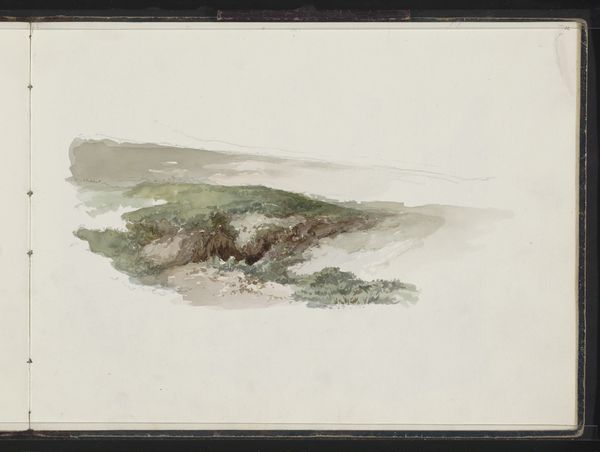
drawing, plein-air, paper, watercolor
#
drawing
#
plein-air
#
landscape
#
paper
#
watercolor
#
coloured pencil
#
genre-painting
Copyright: Rijks Museum: Open Domain
This delicate scene of the Oude Kerk in Scheveningen was captured by Willem Troost using watercolor on paper. The thin washes of color allow the texture of the paper to show through, creating a sense of light and air. The artist skillfully uses the fluidity of watercolor to depict the natural elements: the dune grass, the sandy beach, and the reflections of boats in the water. But watercolor has its challenges. Its transparency demands careful layering, and its tendency to bleed requires a sure hand. Troost’s mastery of the medium allowed him to capture the atmospheric conditions of the coastal landscape. The choice of watercolor, a portable and relatively inexpensive medium, suggests that this work was likely created en plein air, or outdoors. This was a common practice for landscape painters in the 19th century, who sought to capture the fleeting effects of light and weather. The directness and immediacy of watercolor perfectly suited this purpose. It collapses the distance between artist, subject and experience.
Comments
No comments
Be the first to comment and join the conversation on the ultimate creative platform.
